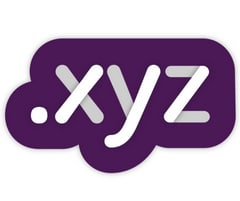Company that runs .xyz domain wants to make documents from legal battle public.

XYZ.com, LLC, the company that operates the .xyz top level domain name, has asked a court (pdf) to let it make certain documents from a lawsuit with Verisign (NASDAQ:VRSN) public.
Verisign, the registry that operates the .com and .net top level domains, sued the .xyz operator in early 2015 alleging false advertising. Basically, Verisign said XYZ inflated its success and disparaged Verisign’s domains.
After extensive discovery, a judge tossed out Verisign’s suit on summary judgment. XYZ then asked the court to require Verisign to pay its $1.6 million legal bill, but that was put on hold as Verisign appealed the lower court’s ruling to an appeals court.
The appeals court ruled against Verisign and then the lower court considered the request for fees. It denied the request other than about $57,000 in discovery fees.
XYZ appealed the court’s decision to not award legal fees and the appeal is ongoing.
On Friday, XYZ asked the court to let it make a number of documents from the original suit public. They were originally filed under seal as “attorneys eyes only”.
XYZ argues that the public has a basic right to access court documents, particularly those that are key to understanding a court’s judgments and decisions. It says the documents it wants to file publicly are key evidence in XYZ’s forthcoming renewed motion for attorney’s fees.
XYZ wants to make portions of three deposition transcripts as well as a dozen documents public. The company admits these documents might be embarrassing to Verisign, but says they do not contain “highly sensitive business and financial information”.
The transcripts include depositions of Verisign SVPs Pat Kane and Scott Schnell.
Depending on what’s in the documents, Verisign might have an interest in keeping them private due to its current negotiation with the U.S. government over the Cooperative Agreement to run .com as well as the ongoing fight over .Web.






Sounds like XYZ is looking for a private settlement.
ya think?
It looks like the legal lead @ Verisign was not thinking ahead